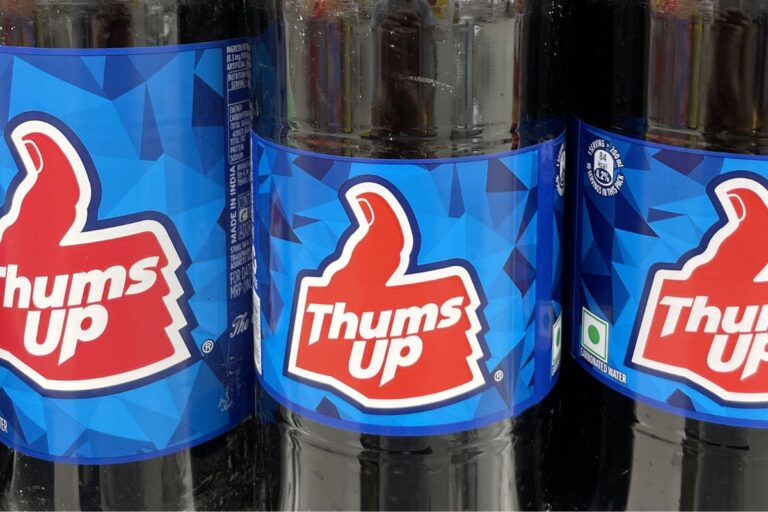15 Muscle-Building Foods to Add to Your Diet for Gains
Fueling your body with the right nutrients is essential for muscle growth and recovery. Whether you’re new to strength training or looking to optimize your diet, focusing on nutrient-rich foods can make a significant difference in your progress.
Protein is crucial, but other nutrients, like healthy fats, carbohydrates, and vitamins, play an equally important role in muscle development.
Choosing a variety of foods allows you to gain essential nutrients, stay energized, and support overall wellness. From lean meats to plant-based options, these muscle-building foods can help you reach your fitness goals faster.
Chicken Breast
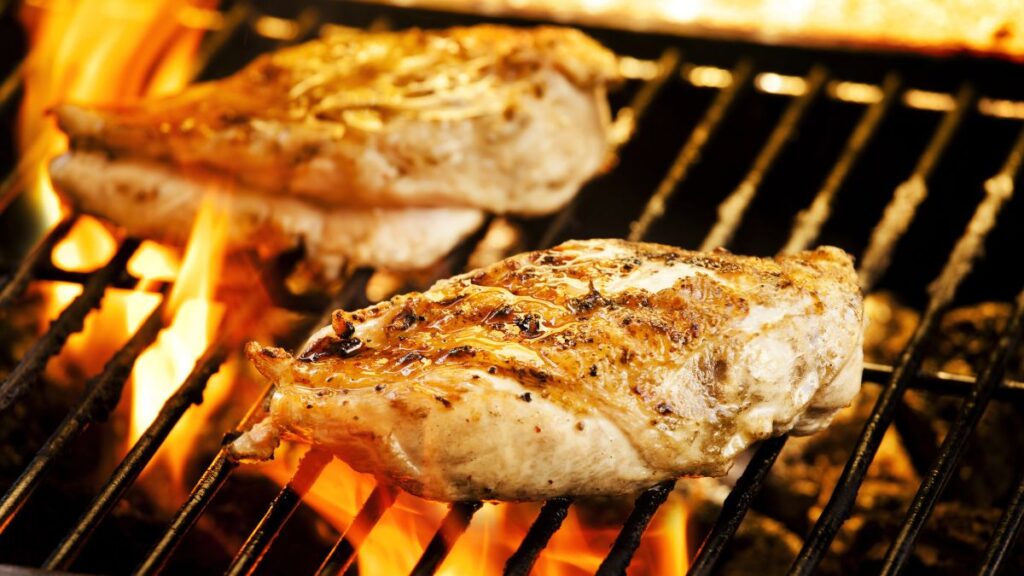
Chicken breast is a staple for muscle growth, thanks to its high protein content and low-fat profile. It offers an impressive amount of protein per serving, which aids in muscle repair and growth after workouts.
The lean nature of chicken breast also means fewer calories from fat, making it ideal for a balanced, high-protein diet. Cooking it in various ways—grilled, baked, or shredded—can add versatility to your meals. Including chicken breast in your diet provides a reliable source of protein to meet your daily needs.
Salmon
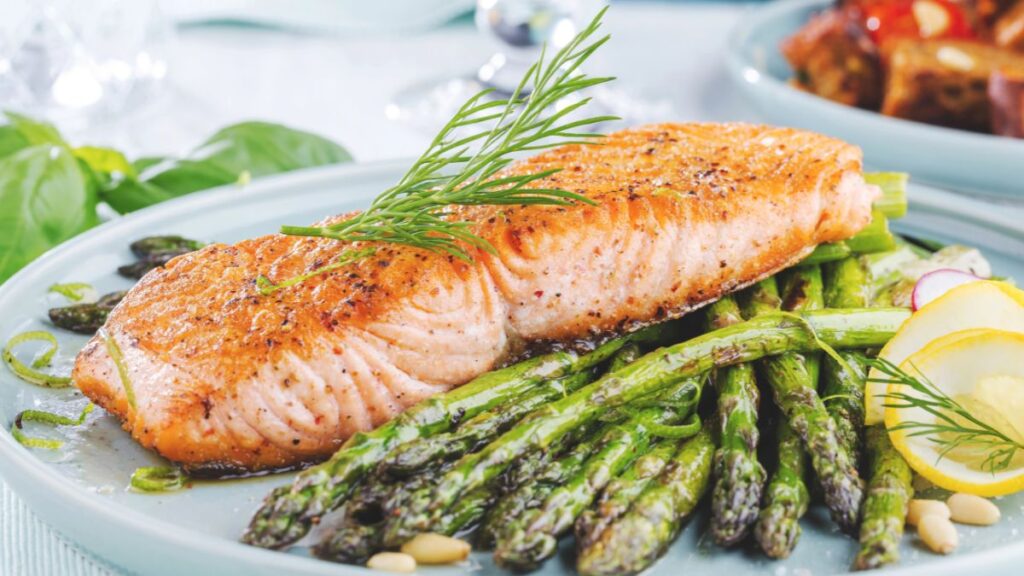
Salmon is packed with protein and rich in omega-3 fatty acids, which support muscle recovery and reduce inflammation. These healthy fats can enhance muscle blood flow, boosting workout performance.
Additionally, salmon provides vitamins like B12 and D, essential for energy and muscle function. Regularly eating salmon can contribute to long-lasting strength and endurance. With its distinct flavor, salmon is an excellent addition to any muscle-focused diet.
Eggs
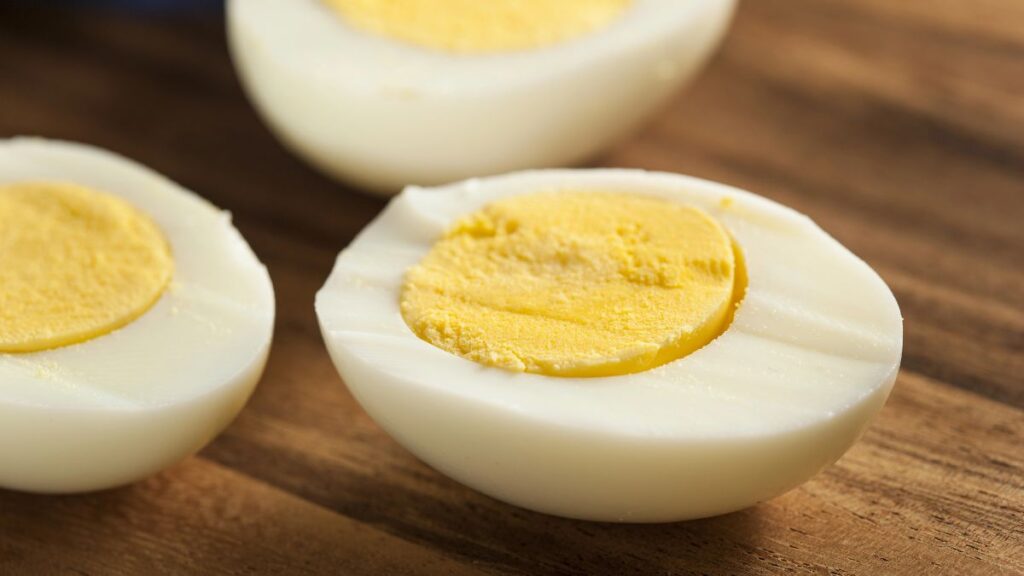
Eggs offer a complete source of protein and contain all nine essential amino acids necessary for muscle growth. They also contain healthy fats and essential nutrients like choline, which support brain and muscle function.
The high-quality protein in eggs makes them an excellent food for post-workout recovery. Eggs are versatile and can be cooked in many ways to fit different meals. Including eggs in your diet is an easy way to increase your protein intake without overloading with calories.
Greek Yogurt

Greek yogurt is a protein powerhouse, containing nearly double the protein of regular yogurt. This makes it an ideal snack for muscle recovery and growth. The probiotics in Greek yogurt also support gut health, aiding in better nutrient absorption.
Greek yogurt is high in calcium, which is crucial for muscle contraction and bone health. Its creamy texture and slight tang make it a great addition to smoothies, overnight oats, or as a base for savory sauces.
Cottage Cheese
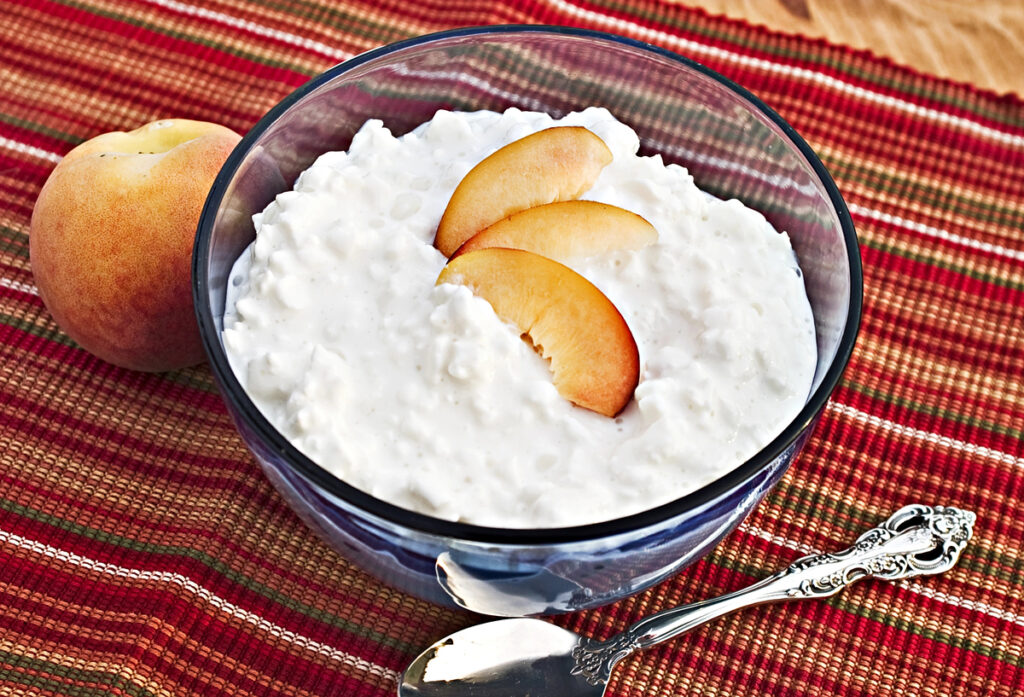
Cottage cheese is rich in casein protein, a slow-digesting protein that helps keep muscles nourished for extended periods. This makes it particularly beneficial as a late-night snack, providing protein while your body recovers during sleep.
It’s also a great source of calcium, promoting bone health alongside muscle growth. Cottage cheese can be enjoyed on its own or mixed with fruits for a protein-rich snack. Its versatility allows for easy incorporation into a muscle-focused diet.
Beef
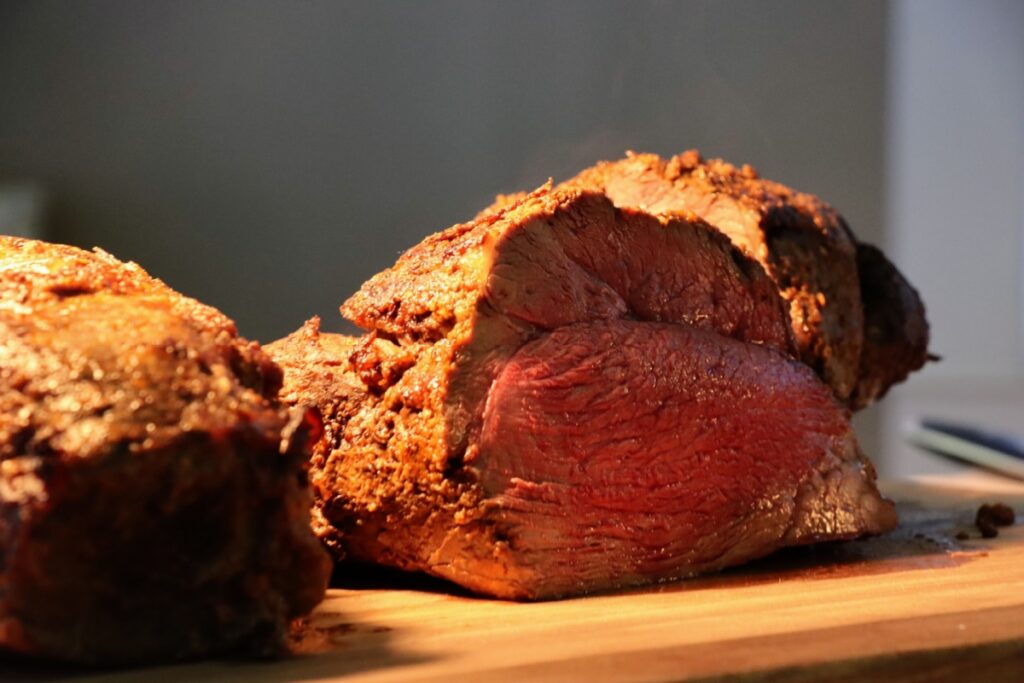
Beef is loaded with protein, iron, and creatine, all of which contribute to muscle strength and endurance. The amino acid profile in beef is well-suited to muscle repair and growth, making it a popular choice for those looking to bulk up.
Opting for lean cuts minimizes fat intake while still providing the necessary nutrients. Beef also contains B vitamins, which are essential for energy and muscle function. Including lean beef in your meals can help boost your overall protein intake effectively.
Quinoa
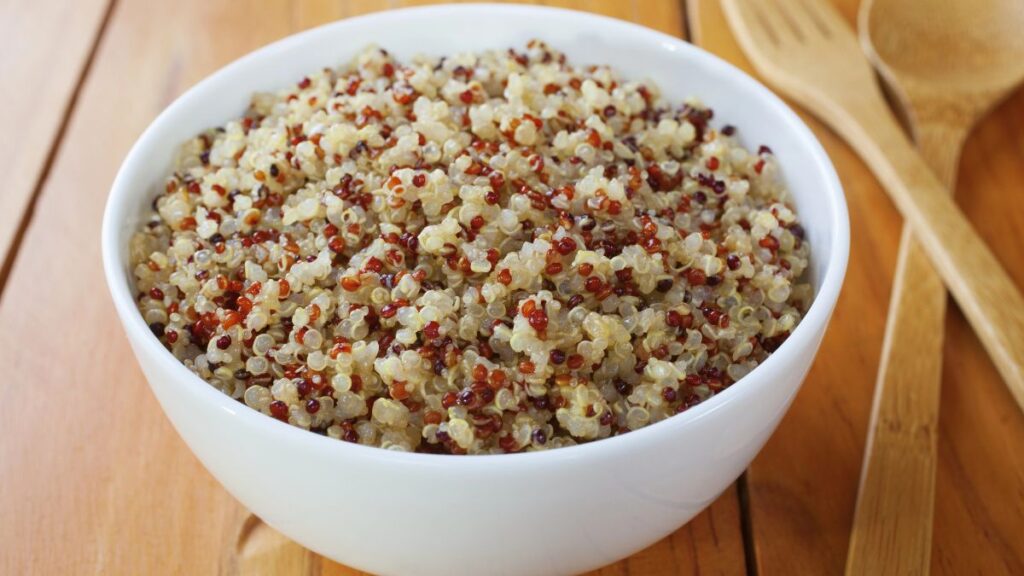
Quinoa is a plant-based, complete protein source that contains all the essential amino acids for muscle growth. It’s also packed with fiber, iron, and magnesium, which support energy levels and muscle function.
As a gluten-free grain, quinoa is an excellent carb option for sustained energy and recovery. Its nutty flavor pairs well with various dishes, from salads to stir-fries. For plant-based eaters, quinoa is a fantastic protein-rich addition to a muscle-building diet.
Tofu
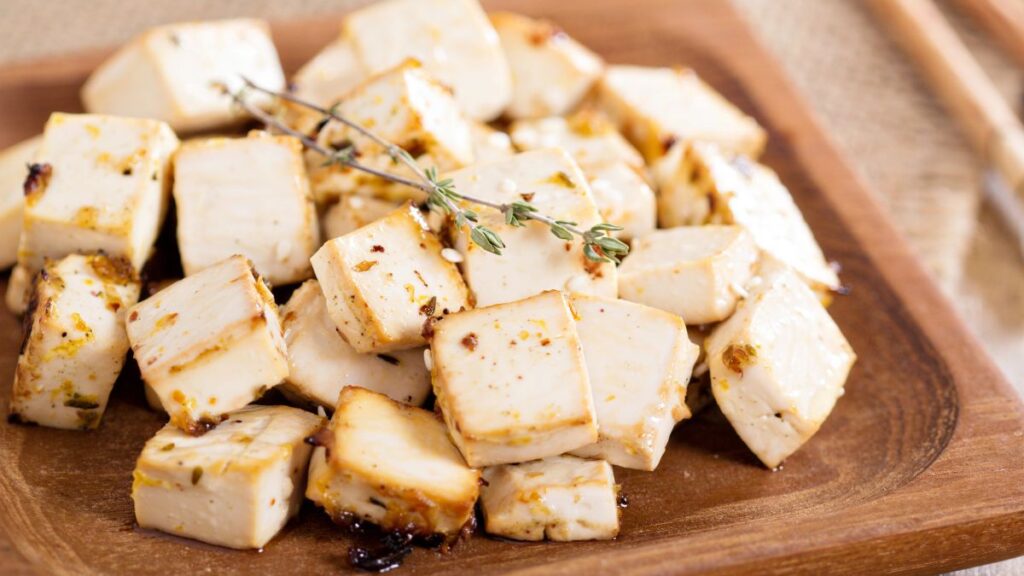
Tofu is a protein-rich food derived from soybeans, making it an excellent plant-based option for muscle growth. It’s low in fat and provides calcium, aiding muscle contractions and bone health.
Tofu is highly versatile and can be seasoned and cooked in multiple ways, fitting into savory or sweet dishes. For those on a vegetarian or vegan diet, tofu is a valuable protein source that supports muscle repair. Incorporating tofu into your meals can help diversify protein sources while boosting intake.
Tuna
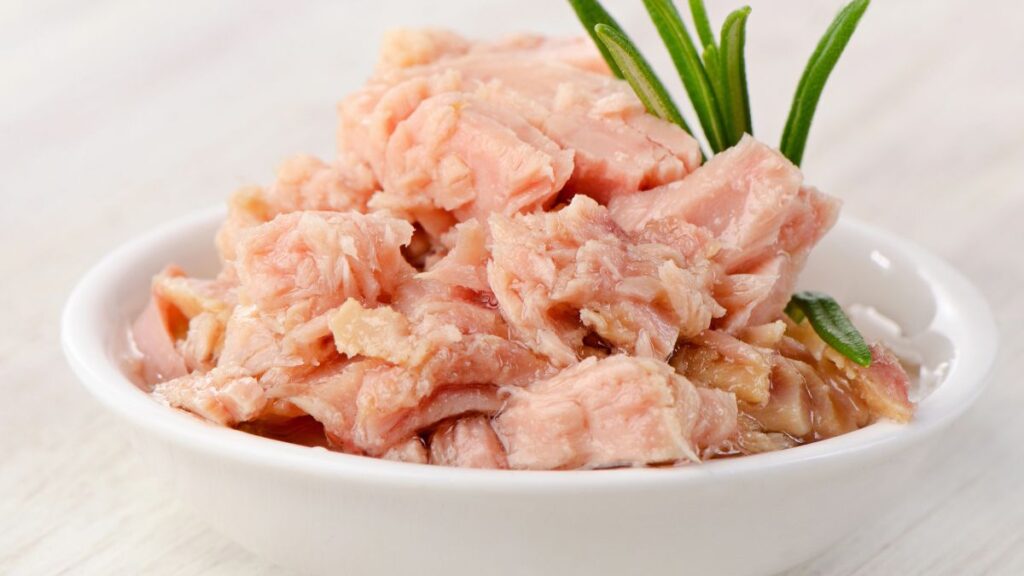
Tuna is a lean, high-protein fish with low-fat content, ideal for muscle building. It also contains omega-3 fatty acids that support muscle recovery and reduce inflammation. Tuna is rich in B vitamins, which help produce energy during workouts. Canned tuna is affordable and convenient, making it easy to incorporate into various meals. Adding tuna to your diet provides a quick, protein-packed option for muscle support.
Almonds
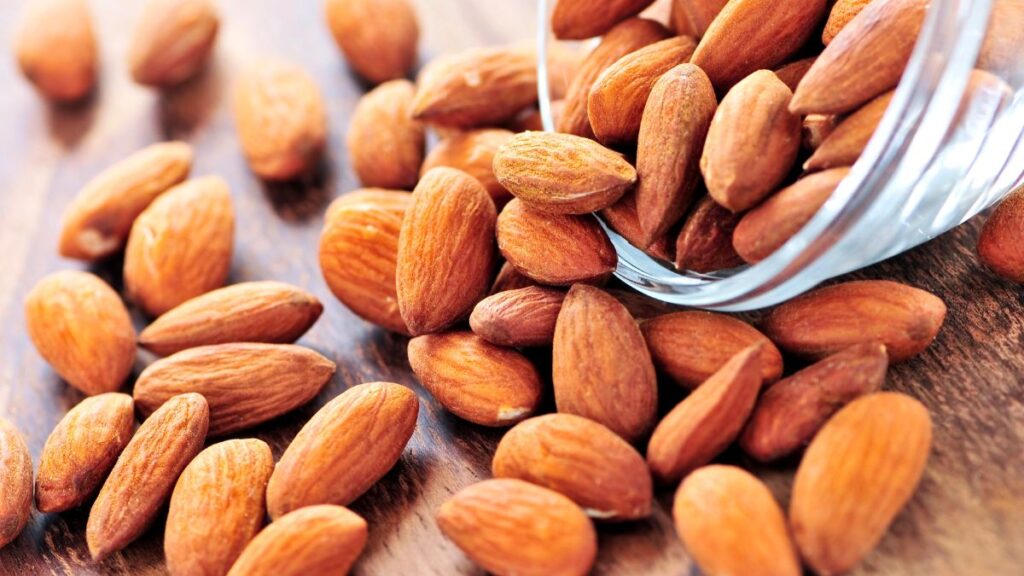
Almonds offer a convenient source of protein and healthy fats, essential for muscle recovery and energy. They’re also high in vitamin E, an antioxidant that helps protect cells from damage during intense exercise.
Almonds’ fiber supports digestive health and can aid in nutrient absorption. A handful of almonds makes for a great snack, providing a mix of protein and energy-boosting fats. Almonds are a portable, nutrient-dense snack option for muscle-focused diets.
Brown Rice
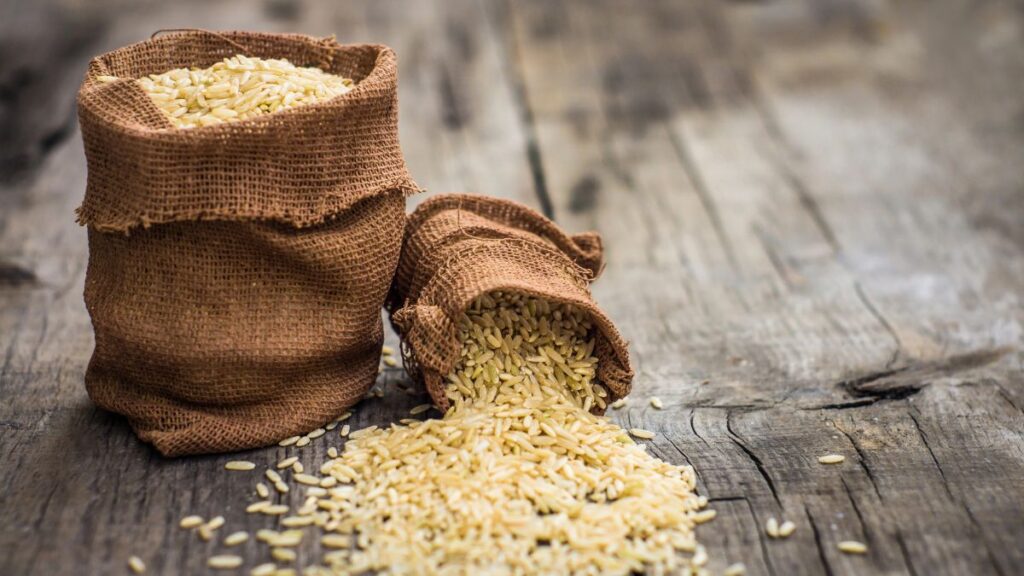
Brown rice is a complex carbohydrate that offers a steady release of energy that can fuel workouts and aid recovery. It also contains some protein and essential nutrients like magnesium and phosphorus, which are necessary for muscle function.
Brown rice pairs well with high-protein foods, creating balanced meals that support muscle growth. It’s a filling option, helping you stay energized throughout the day. Including brown rice in your meals can provide a stable energy source and support muscle health.
Chickpeas
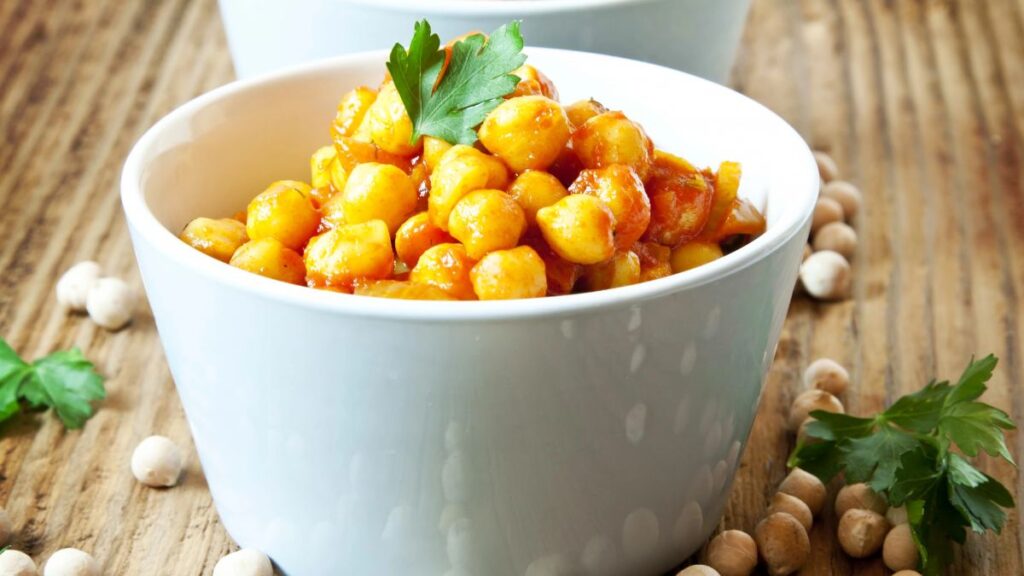
Chickpeas are a plant-based protein source that also offers fiber and essential minerals, such as iron and magnesium. They’re versatile and can be used in salads, soups, or blended into hummus, adding protein to your meals.
The fiber in chickpeas supports digestive health and promotes better nutrient absorption. For vegetarians and vegans, chickpeas are an excellent choice for increasing protein intake. Including chickpeas in your diet adds variety and provides nutrients that support muscle growth.
Sweet Potatoes

Sweet potatoes are an excellent source of complex carbohydrates, providing energy for workouts and recovery. They’re also rich in vitamin A and potassium, which play a role in muscle contraction and immune health.
The fiber in sweet potatoes supports digestion, helping your body absorb nutrients efficiently. Their natural sweetness and versatility make them a great addition to both savory and sweet dishes. Sweet potatoes offer a nutritious carbohydrate source to support energy and muscle recovery.
Spinach

Spinach is a leafy green packed with iron, magnesium, and antioxidants, all supporting muscle health. Iron aids in oxygen transport to muscles, boosting endurance, while magnesium supports muscle contraction. Spinach can be added to smoothies, salads, or cooked dishes, making it easy to include in a balanced diet.
Its high vitamin content also contributes to overall wellness and immune health. Adding spinach to your diet provides essential nutrients for muscle growth and recovery.
Lentils
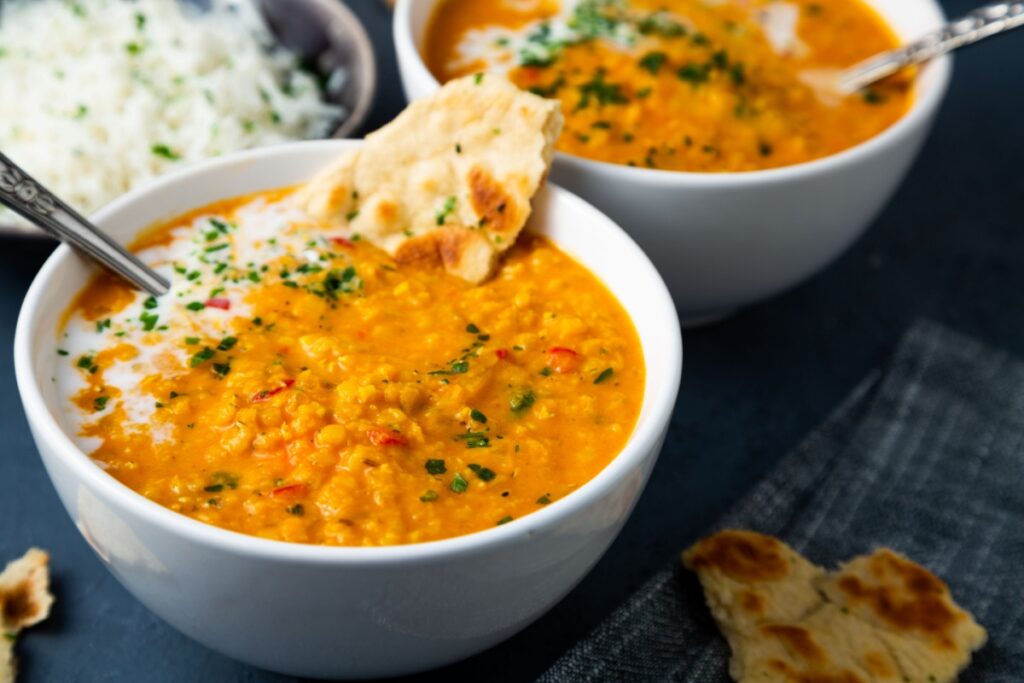
Lentils are a plant-based protein source packed with fiber, iron, and essential amino acids, promoting muscle growth and energy. They’re highly versatile and can be used in soups, stews, or as a base for salads, adding protein to your meals.
The iron in lentils supports oxygen delivery to muscles, aiding in endurance and recovery. Lentils offer a nutritious alternative for those looking to increase protein without meat. Including lentils in your diet can help you easily meet your muscle-building goals.
Cheapest Fast Food Options: Your Guide to Budget-Friendly Meals

Convenience often matters more than cost nowadays; fast food has become a regular part of many people’s daily lives. These quick and easy meals are known for being affordable, but prices differ greatly from one restaurant to another.
Cheapest Fast Food Options: Your Guide to Budget-Friendly Meals
Crockpot Meals Under $10: Easy and Economical Recipes

Creating tasty and budget-friendly meals for your family doesn’t have to be expensive or time-consuming. Crockpots, those well-loved kitchen gadgets, can make a big difference for anyone wanting to cook delicious, satisfying, affordable meals.







